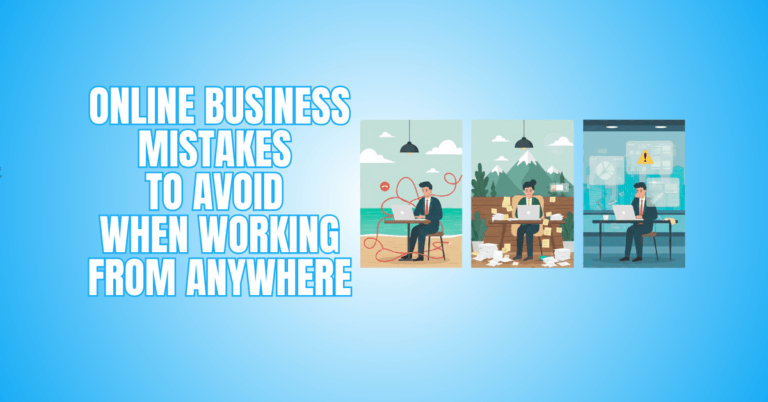How To Stop Being Lazy
How To Stop Being Lazy: Overcoming Procrastination And Boosting Productivity
Laziness is a common struggle that leads to procrastination, low motivation, and unfulfilled goals. While occasional laziness is natural, chronic laziness can hinder success and personal growth.
Learning how to stop being lazy involves understanding its causes, like fear of failure or lack of discipline, and applying effective strategies.
This guide offers practical steps to enhance motivation, develop productive habits, and boost productivity, helping you overcome laziness and take charge of your life.
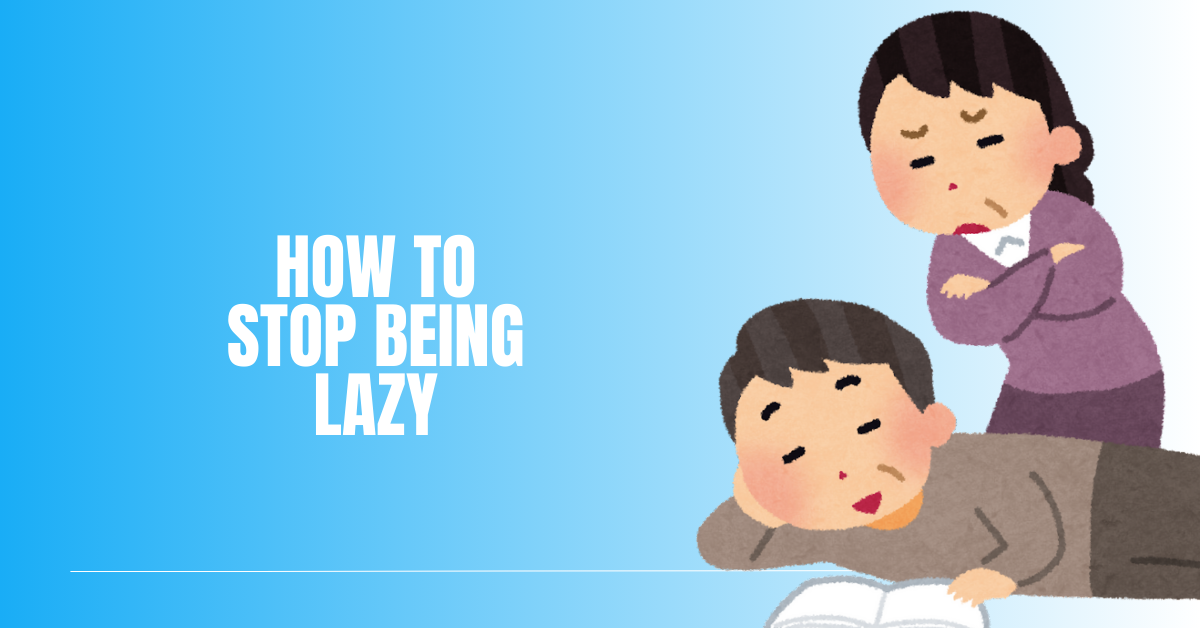
Understanding Laziness
Laziness is more of a mental and bodily response than an inherent flaw to various factors. Some of the primary causes include:
1. Unclear Goals
Without clear objectives, people struggle to find motivation and direction. When they lack a defined purpose, they often feel lost and unmotivated, making it easier to procrastinate. Setting specific, achievable goals provides clarity, encourages focus, and helps maintain long-term motivation.
2. Fear Of Failure
Many people avoid tasks because they fear imperfection or criticism. Anxiety over imperfection leads to hesitation, self-doubt, and delays.
Overcoming this fear requires embracing mistakes as learning opportunities, focusing on progress over perfection, and gradually building confidence.
3. Overwhelming Tasks
Large or complex tasks often seem intimidating, leading to avoidance. When responsibilities appear too difficult or time-consuming, individuals feel stuck and delay taking action.
Want to Start Making Money Online?
Try My #1 Recommendation Program!
Breaking tasks into smaller, step-by-step planning decreases stress, making it easier to begin and maintain steady progress.
4. Low Energy Levels
Poor nutrition, lack of exercise, and insufficient sleep contribute to fatigue and reduced productivity. When energy levels are low, even simple tasks feel exhausting, leading to procrastination. Prioritizing a healthy diet, regular physical activity, and adequate rest can improve focus and motivation.
5. Distractions And Addictions
Excessive time spent on social media, video games, or television disrupts focus and productivity. These distractions create a habit of avoidance, making it harder to complete essential tasks. Setting limits on entertainment and creating structured routines can help regain control over time.
6. Lack Of Self-Discipline
Without discipline, staying focused and completing tasks efficiently becomes difficult. People often give in to distractions and impulses, delaying work.
Developing self-discipline through time management, goal setting, and consistent routines helps improve productivity and fosters a stronger sense of responsibility.
7. Comfort Zone Mentality
Preferring comfort over challenges prevents personal and professional growth. Staying within familiar routines may feel safe but limits new experiences and skills.
Embracing discomfort by taking on complex tasks and pushing personal limits encourages development, resilience, and long-term success.
8. Delayed Consequences
When the adverse effects of laziness are not immediate, people continue procrastinating. The absence of short-term repercussions makes it easier to ignore responsibilities.
Recognizing the long-term impact of inaction and setting deadlines can encourage accountability and promote a proactive mindset.
9. Lack Of Internal Motivation
Relying solely on external rewards reduces enthusiasm for tasks. When individuals lack personal investment in their work, they quickly lose interest. Cultivating internal motivation by finding meaningful goals, aligning tasks with personal values, and celebrating small achievements increases engagement and drive.
10. Mental Health Challenges
Anxiety, depression, and other conditions significantly impact motivation and energy levels. Emotional distress makes even routine tasks overwhelming, increasing procrastination.
Seeking professional support, practicing self-care, and developing healthy coping strategies can improve mental well-being and help regain motivation for daily activities.

The Consequences Of Laziness
Laziness has several negative impacts, including:
1. Missed Opportunities
Avoiding action can result in lost chances for education, career growth, and self-improvement. When individuals fail to seize opportunities, they limit their potential, fall behind peers, and miss valuable experiences that could have helped them achieve success and personal fulfillment.
2. Increased Stress
Procrastination often leads to last-minute work, causing panic and anxiety. As deadlines approach, tasks feel overwhelming, resulting in rushed, low-quality output.
Over time, chronic stress from unfinished responsibilities can negatively impact mental health, reducing motivation and overall well-being.
3. Poor Health
Laziness often encourages a sedentary lifestyle, leading to obesity, heart disease, and other serious health problems. Lack of physical activity weakens the body, while poor diet and sleep habits contribute to fatigue, reducing overall energy levels and the ability to stay productive.
4. Lower Self-Esteem
Repeatedly failing to complete tasks can cause guilt, frustration, and self-doubt. Over time, individuals may lose confidence in their abilities, feeling incapable of achieving goals. This negative cycle can prevent them from taking initiative, reinforcing feelings of inadequacy and failure.
5. Damaged Relationships
Neglecting commitments due to laziness strains personal and professional relationships. Missing deadlines, ignoring responsibilities, and failing to offer support can create resentment and disappointment.
Want to Find Out How To Start Your Home-Based Business?
Try My #1 Recommendation Platform!
When trust is broken, relationships suffer, leading to conflicts, misunderstandings, and loss of valuable social connections.
6. Reduced Productivity And Success
Consistently avoiding responsibilities lowers efficiency, making it harder to reach goals. Missed deadlines, lack of focus, and poor work habits result in stagnant progress. Over time, this can lead to job loss, academic failure, and an overall decline in personal and professional achievements.
7. Financial Struggles
Laziness can negatively affect financial stability by reducing career opportunities and work performance. Avoiding responsibilities leads to missed promotions, poor job security, and difficulty managing finances. Over time, this behaviour can result in debt, limited income, and long-term financial insecurity.
8. Weakened Problem-Solving Skills
Regularly avoiding challenges prevents individuals from developing strong critical thinking and problem-solving abilities.
When people fail to engage in difficult situations, they struggle to adapt, make informed decisions, and handle future obstacles, ultimately limiting their ability to grow and succeed.
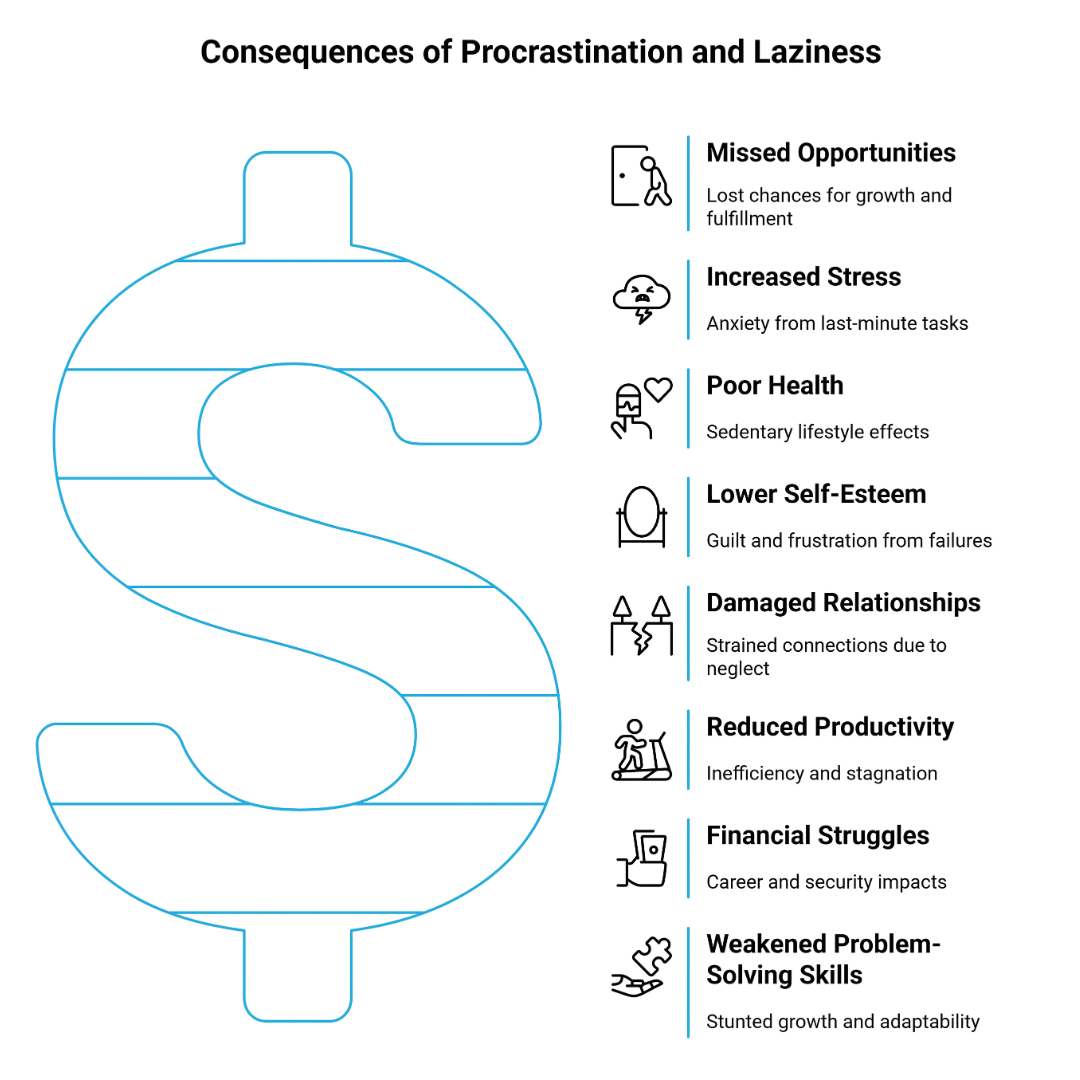
How To Stop Being Lazy: Practical Steps
If you're struggling with productivity, learning how to stop being lazy can help you regain focus and motivation.
1. Set Clear And Achievable Goals
Setting clear and realistic goals helps reduce procrastination and increases motivation. Breaking down large tasks makes them more approachable and less overwhelming.
Using SMART goals (Specific, Measurable, Achievable, Relevant, and Time-bound) provides structure, clarity, and direction.
With well-defined objectives, you can track progress, stay focused, and consistently move closer to achieving your personal and professional goals.
- Set clear, realistic goals that are practical and attainable.
- Break large tasks into smaller, manageable steps.
- Use SMART goals for structure and clarity.
- Track your progress to stay motivated.
- Stay focused and adjust as needed to make steady progress.
2. Develop A Routine And Stick To It
A structured daily routine helps create discipline and reduce decision fatigue. By allocating specific time slots for tasks, you can ensure that responsibilities are completed efficiently and on time.
A well-planned routine minimizes distractions and improves focus, making staying consistent with your goals easier. Maintaining a routine helps foster positive habits that ensure long-term productivity and success.
- Establish discipline by maintaining a structured daily routine.
- Reduces decision fatigue by assigning specific time slots for tasks.
- Enhances focus by minimizing distractions and improving efficiency.
- Develops positive habits that promote long-term productivity and success.
3. Eliminate Distractions
Identifying and removing distractions is key to improving focus and maintaining productivity. You can reduce interruptions by silencing notifications, setting app restrictions, or using website blockers.
Are You Tired Of Scams?
Want to Start Making Money Online?
Creating a designated workspace and setting clear boundaries for work time helps maintain concentration. Eliminating distractions allows you to dedicate your full attention to important tasks, reducing procrastination and helping you stay focused on your responsibilities.
- Silence notifications and set app restrictions to minimize interruptions.
- Use website blockers to prevent access to distracting sites.
- Create a dedicated workspace to enhance focus and efficiency.
- Establish clear boundaries for work time to maintain concentration and productivity.
4. Practice The 5-Second Rule
Mel Robbins introduced the 5-Second Rule, which involves counting down from five and taking immediate action before hesitation or doubt sets in.
This technique helps you bypass overthinking, jumpstart momentum, and take action quickly. Acting promptly eliminates procrastination and builds confidence in your decision-making.
By consistently using this rule, you can rewire your brain to be more proactive, leading to higher productivity and reduced hesitation.
- Count down from five to take immediate action and avoid hesitation.
- Jumpstart momentum by bypassing overthinking and acting quickly.
- Eliminate procrastination and build confidence in decision-making.
- Rewire your brain to be more proactive, boosting productivity and reducing doubt.
5. Adopt A Growth Mindset
A growth mindset is the belief that one can improve through effort and learning from mistakes. Embracing this mindset turns challenges into opportunities for personal growth, fostering perseverance and reducing the fear of failure.
It encourages you to keep pushing forward. By focusing on effort and learning instead of perfection, you build resilience, stay motivated, and continue progressing toward your goals.
- Treat obstacles as opportunities to enhance your abilities.
- Strengthen perseverance by embracing effort and learning from mistakes.
- Overcome the fear of failure by focusing on progress rather than perfection.
- Stay motivated, build resilience, and strive to achieve personal and professional goals.
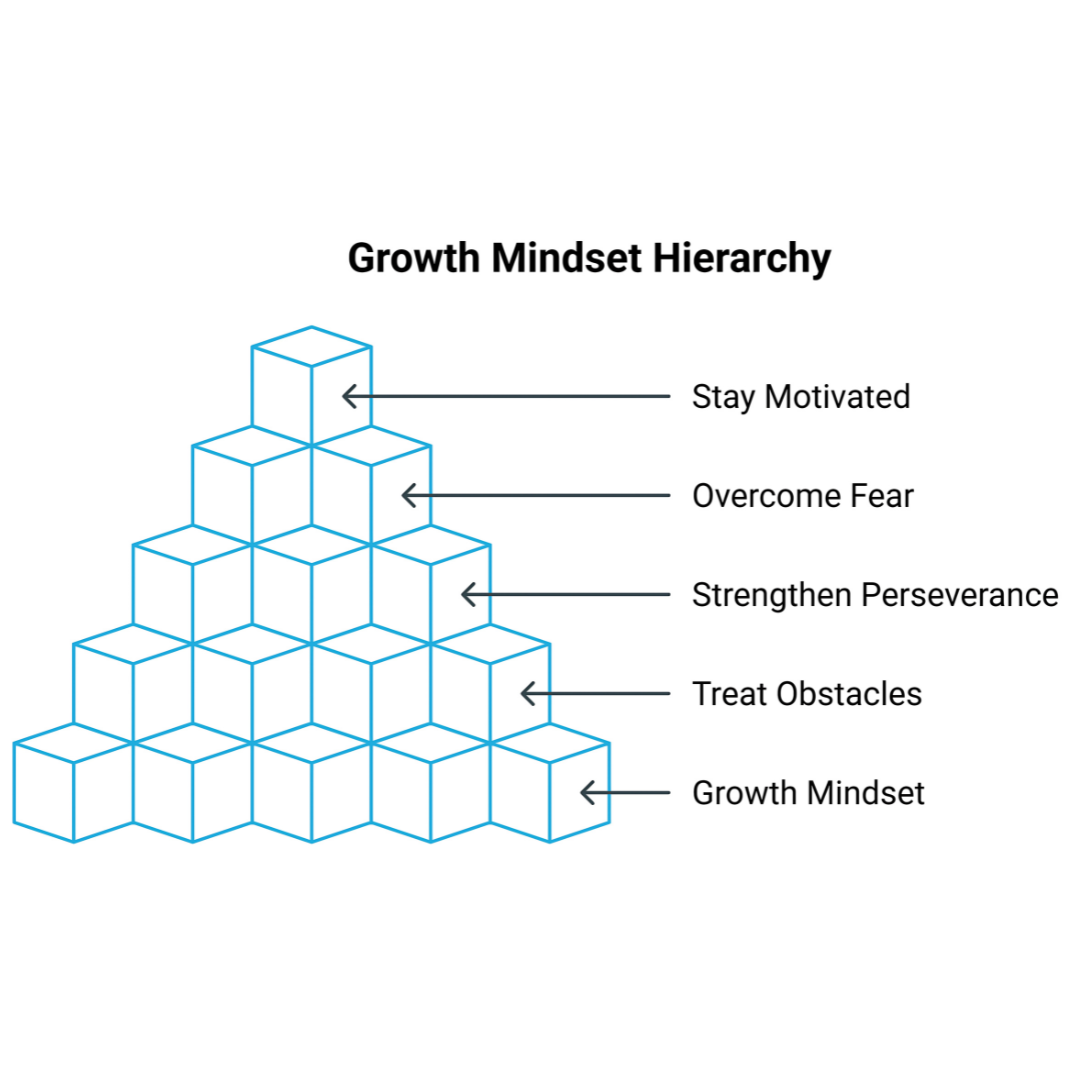
6. Take Care Of Physical Health
Physical health greatly influences energy levels, mental clarity, and motivation. Regular exercise enhances circulation, reduces stress, and sharpens focus.
A balanced diet supplies essential nutrients for cognitive function, while sufficient sleep rejuvenates both mind and body.
Prioritizing physical health helps boost productivity and sustain an energized mindset. Maintaining good health keeps you focused, motivated, and proactive, effectively combating laziness and enhancing overall well-being.
- Regular exercise improves circulation, reduces stress, and enhances focus.
- A balanced diet supplies essential nutrients for optimal cognitive function.
- Good sleep rejuvenates both your physical and mental well-being.
- Prioritizing physical health boosts energy, motivation, and long-term productivity.
7. Seek Accountability And Support
Having an accountability partner or joining a productivity group can significantly increase one's commitment to goals. Sharing one's objectives with someone else provides external motivation and support.
Want To Learn How To Create Your Own Website And Online Business?
Try My #1 Recommendation Training And Hosting Platform!
Regular check-ins and progress updates help keep you on track and prevent procrastination. Being held accountable helps maintain responsibility and reduces the temptation to procrastinate, making it easier to stay focused and achieve success.
- Find a partner to hold you accountable and committed to your goals.
- Schedule regular check-ins to track progress and avoid procrastination.
- Share your objectives for external support and encouragement.
- Stay accountable to maintain focus, consistency, and long-term success.
8. Reward Yourself For Progress
Celebrating small victories keeps motivation high. Rewards provide positive reinforcement, whether enjoying a treat, taking a break, or doing something fun.
Acknowledging even minor achievements boosts confidence and fosters a sense of accomplishment. These small rewards reinforce positive behavior, encouraging consistency and commitment to tasks. By recognizing progress, you stay motivated and build a cycle of productivity and success.
- Celebrate small wins to maintain motivation and reinforce progress.
- Use simple rewards like breaks or treats to stay encouraged.
- Acknowledge achievements to build confidence and consistency.
- Recognizing success helps develop positive habits and sustain productivity.
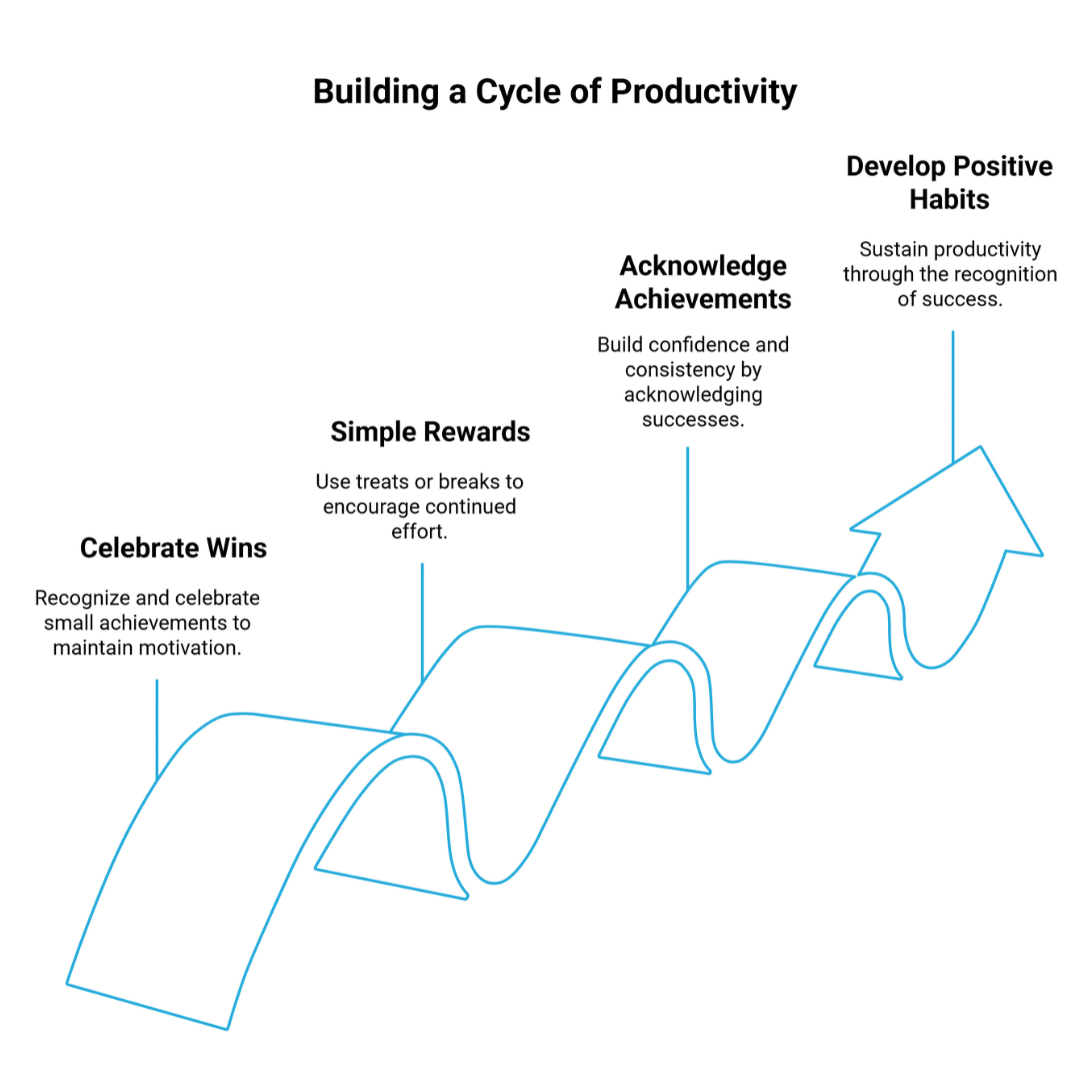
9. Use Time Management Techniques
Effective time management strategies, like the Pomodoro Technique, time blocking, and task prioritization, boost productivity and organization.
Structured work intervals improve focus and minimize distractions, ensuring efficient task completion. By prioritizing responsibilities and managing time wisely, you can avoid procrastination and stay on track.
These techniques help maintain steady progress toward your goals, making workload management more effective and less overwhelming.
- Use time management strategies like Pomodoro and time blocking for better focus.
- Prioritize tasks to complete essential responsibilities efficiently.
- Structured work intervals help minimize distractions and boost productivity.
- Managing time wisely prevents procrastination and ensures steady progress.
10. Visualize Success
Visualization involves picturing the successful completion of a goal, strengthening motivation and commitment. Imagining positive outcomes fosters an emotional connection to tasks, making it easier to overcome procrastination.
This technique boosts confidence, enhances focus, and increases the likelihood of taking action. By visualizing success, you stay driven, persevere through challenges, and remain dedicated to achieving your goals, even when obstacles arise.
- Envision accomplishing your goal to enhance motivation and commitment.
- Visualizing success fosters focus, making tasks feel more achievable.
- This technique boosts confidence and reduces procrastination.
- Regular practice keeps you persistent and dedicated, even when facing obstacles.
11. Cultivate Self-Discipline
Self-discipline is staying focused, resisting distractions, and following through on commitments. It involves setting clear boundaries, holding yourself accountable, and working consistently, even when motivation fades.
Practicing self-discipline strengthens willpower, leading to productive choices. Over time, it becomes a habit that ensures steady progress, boosts productivity, and keeps you on track with long-term goals, fostering more tremendous personal success.
- Stay focused by resisting distractions, prioritizing tasks, and staying committed to goals.
- Set boundaries, create routines, and hold yourself accountable to build discipline.
- Strengthen willpower by staying consistent, even without motivation.
- Make self-discipline a habit for lasting productivity and success.
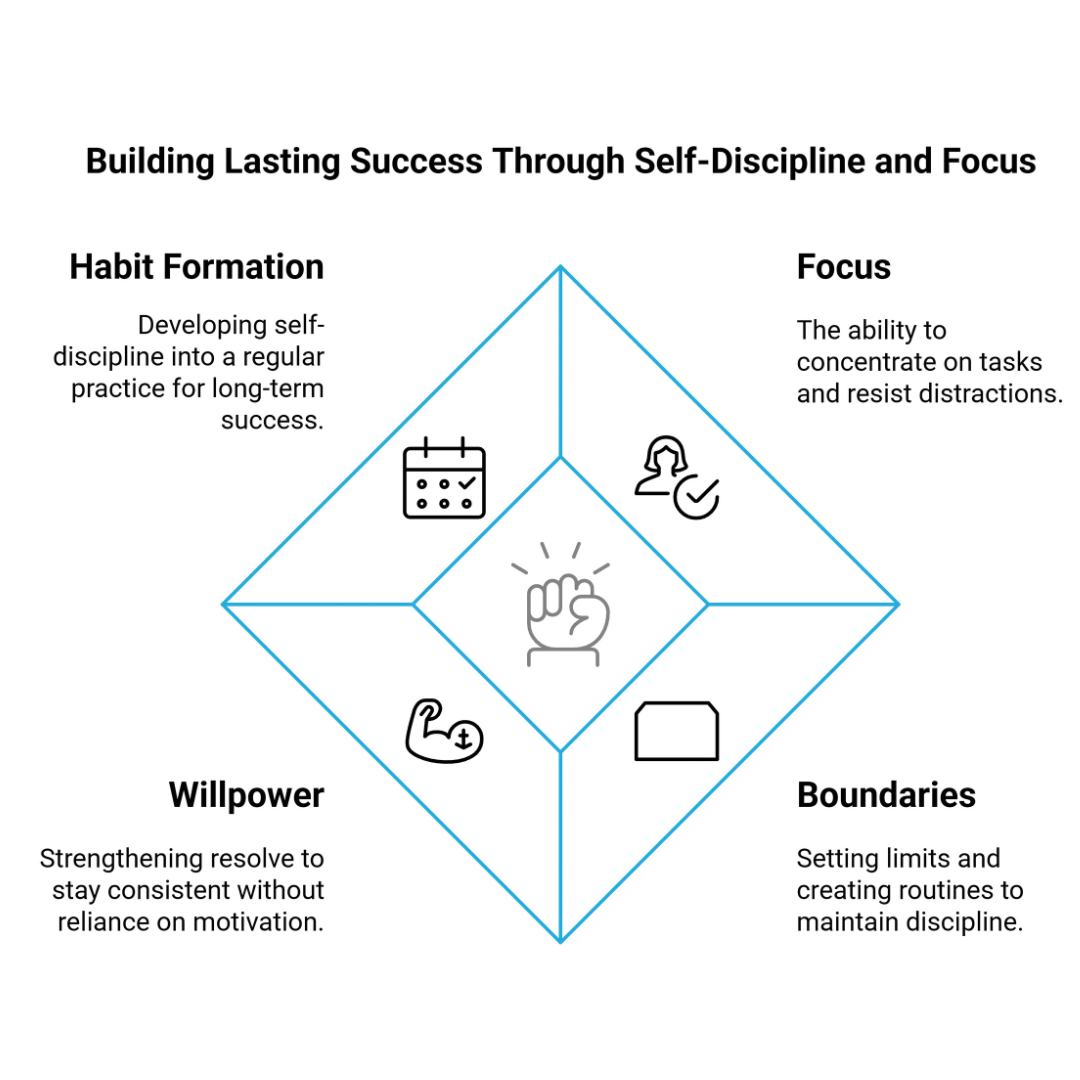
12. Stay Hydrated And Eat Nutritious Meals
Ensuring proper fluid balance and eating nutrient-rich meals ensures steady energy and mental clarity. Drinking enough water prevents fatigue, while a balanced diet supports cognitive function and overall well-being.
Healthy food choices provide sustained energy, helping you avoid sluggishness and stay focused. By prioritizing hydration and nutrition, you enhance physical and cognitive function, helping you maintain motivation and efficiency.
- Drink enough water daily to prevent fatigue and maintain focus.
- Consume a nutritious diet to enhance mental clarity and general health.
- Choose nutritious foods for sustained energy and mental clarity.
- Prioritize hydration and healthy eating to stay productive and motivated.
13. Keep A Productivity Journal
A productivity journal helps track progress, reflect on achievements, and set goals. Writing down daily tasks fosters accountability and motivation.
It identifies behaviour patterns, highlights strengths, and pinpoints areas for growth. Regular reviews reinforce positive habits, boost confidence, and ensure steady progress toward personal and professional success.
Keeping a journal enhances focus, organization, and productivity, making it an essential resource for ongoing growth.
- Track progress and reflect on achievements to stay motivated.
- Write daily tasks to foster accountability and organization.
- Identify patterns, strengths, and growth areas for continuous improvement.
- Regularly review entries to reinforce positive habits and ensure steady success.
14. Limit Social Media Consumption
Excessive social media use drains time, reduces productivity, and encourages laziness. Limiting screen time, setting specific hours, and turning off notifications can improve focus.
Reducing social media consumption helps you regain control over your time, allowing you to focus on essential tasks and avoid distractions.
This boosts efficiency, enhances commitment to responsibilities, and ensures you prioritize more productive activities, ultimately increasing overall effectiveness.
- Limit screen time and set specific hours to regain control over your time.
- Mute notifications to stay focused and avoid distractions.
- Reduce social media consumption to prioritize essential tasks and boost productivity.
- Increase efficiency and commitment by focusing on more productive activities.
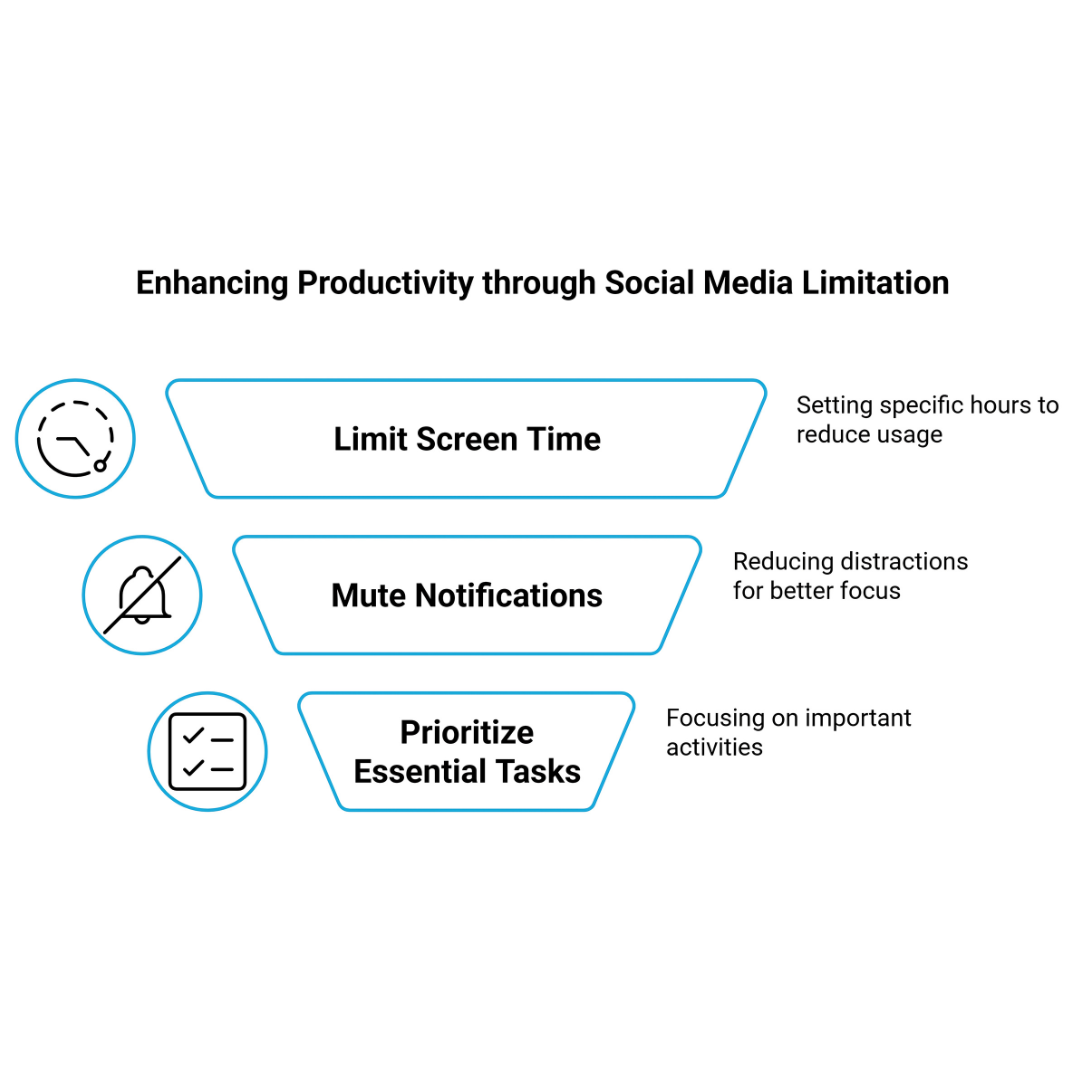
15. Create A Positive Environment
Surrounding yourself with a positive, inspiring environment can significantly impact your motivation and productivity. A clutter-free, organized space fosters focus, reduces stress, and promotes a sense of calm.
Customize your workspace with meaningful items that inspire you, such as motivational quotes, plants, or images. Creating an uplifting environment encourages positivity, enhances creativity, and makes it easier to stay productive and committed to your goals.
- Create a clutter-free, organized space to reduce stress and promote focus.
- Personalize your workspace with items that inspire motivation and positivity.
- Foster a calming, uplifting atmosphere that enhances creativity and productivity.
- Surround yourself with positive influences to stay committed to your goals.
Conclusion
Breaking the habit with determination and practical strategies is essential to stop being lazy. Start by setting clear goals, establishing routines, and reducing distractions. A healthy lifestyle boosts energy and focus.
Learning how to stop being lazy involves working smarter, not harder. With persistence and discipline, anyone can overcome laziness, transform their habits, and create a more productive and fulfilling life. Take control and start implementing these steps today.
I trust you enjoyed this article about How To Stop Being Lazy: Overcoming Procrastination And Boosting Productivity. Please stay tuned for more articles. Take care!
JeannetteZ
Want to Learn How to Build Your Own Home-Based Online Business And Start Making Money Online From Your Comfortable Couch?
Try Wealthy Affiliate!
Your Opinion Is Important To Me
Do you have thoughts, ideas, or questions? I would love to hear from you. Please leave me your questions, experiences, remarks, and suggestions about How To Stop Being Lazy: Overcoming Procrastination And Boosting Productivity in the comments below. You can also email me at Jeannette@WorkFromAnywhereInTheWorld.com.
Disclosure
This post may contain affiliate links. I earn from qualifying purchases as an Amazon Associate and through other affiliate programs. Please read my full affiliate disclosure.
You may also enjoy the following articles:
Wealthy Affiliate Coupons For Premium Memberships
Wealthy Affiliate Review – Scam or Legit? The Truth Exposed
An Insider Wealthy Affiliate Review
How To Be Successful In Personal Life
How To Be Successful In Business Life



